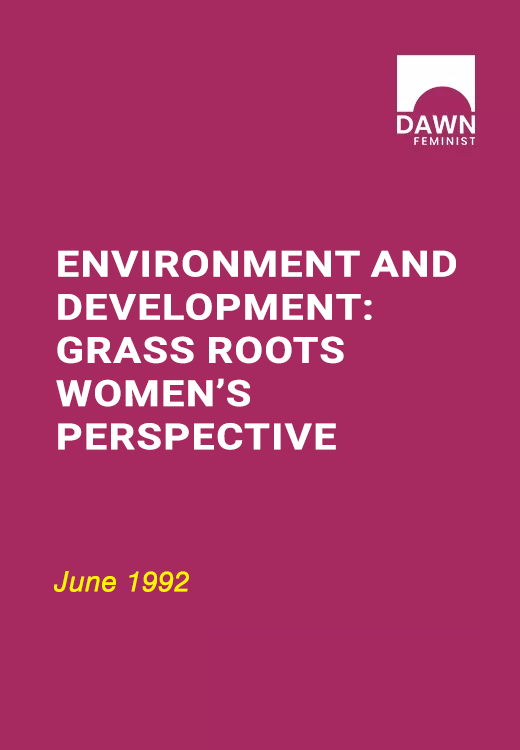This booklet was launched in 1992, as a plataform for the UN Conference on Enviroment and Development (UNCED) in 1992.
“We invite you to share some of the perceptions of poor women from the South. Their experiences reflect the common pressures on basic survival resulting from inequitable social, political and economic systems. Their views of environmental degradation are shaped by their conditions of life. We have chosen cases based on their specific regional experiences. These illustrate the different emphases of their relationship with the environment. In Africa, women identified food security and desertification as pressing problems, Asian women saw increasing poverty, deforestation, loss of biodiversity and natural disasters as central to their crisis. Pacific women saw nuclear testing as the primary threat to their environment. For Latin Americans, increasing poverty, the absence of clean air, safe water, sanitation, and the imbalance of land settlements were central to the concerns of poor urban women. Caribbean women experienced growing poverty, negative environmental impacts of tourism, natural disasters and the overuse of pesticides and fertilisers.
The common thread which traces the wide-ranging environmental problems is the search for sustainable livelihoods. Women across the world have recognised the failure of global and national policies to address that need. An analysis of these policies shows that they not only undermine livelihoods but also create and exacerbate environmental hazards and degradation.”

